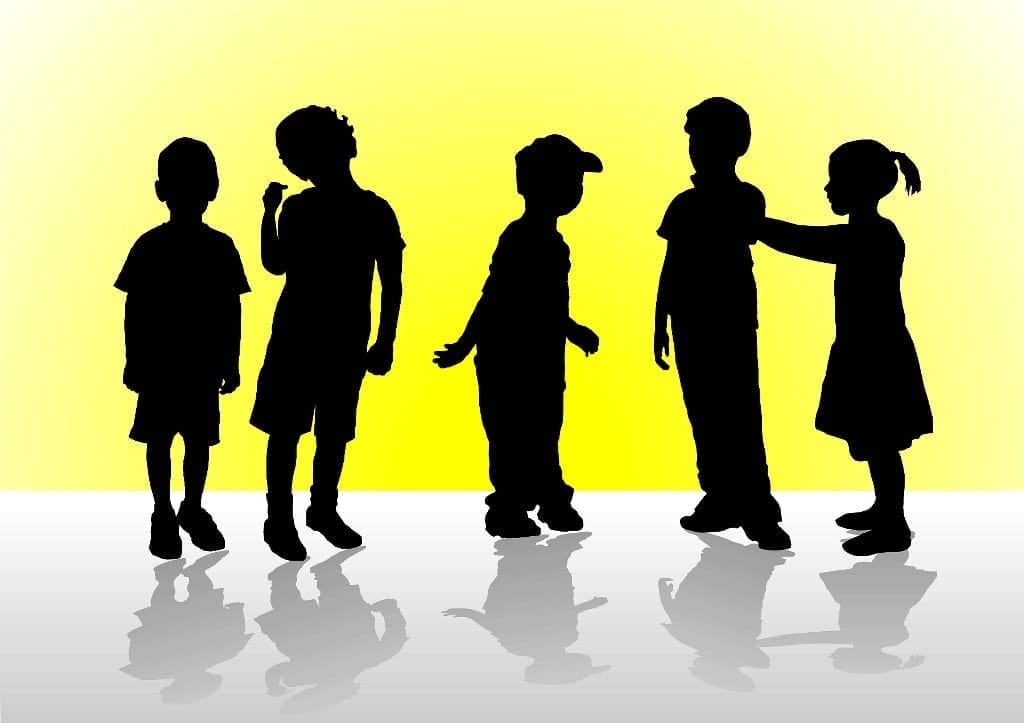Every sibling is familiar with the notion of the “golden child”, or “rebel child”. There is always a child who is beloved by their parents, excels academically and socially, and is the epitome of success, and there is always the child who defies authority, thwarts responsibility, and has unsuitable friends and interests. But how much of this is really reflected in sibships? Are first-borns likely to be golden children? Are later-borns predisposed to be rebels? Does our birth order really affect who we become? Much of mid-1900’s psychology was focused on finding the answers to these questions. The “Big Five” was a psychological trait theory developed during that era which is still used to study personality, especially in regards to birth order. The spectrum includes extraversion, emotional stability or neuroticism, agreeableness, conscientiousness, and openness to experience. Research shows that not only does our birth order affect personality, but it impacts our relative intelligence, and the family dynamic that influences who we become.
Although every person is unique, there are parallels between pairs of siblings in Big Five personality traits that are unarguably due to birth order. A meta-analysis of birth order studies found commonalities in personality traits between sibling order. First-borns tended to score high on neuroticism due to excessive feelings of responsibility, whereas later-borns lacked feelings of responsibility and conscientiousness due to overindulgence. First-borns were also more likely to show dominance over their siblings, resulting in lower agreeableness scores. In contrast, later-borns, searching for other ways to establish themselves, tended to be more sociable and thus more agreeable and extroverted. Studies also showed that many first-borns tend to feel more anxious and quick to anger, whereas later-borns are more likely to be depressed and feel self-conscious. These similarities across sibships show that birth order directly affects personality trait development.
Intelligence is the most greatly impacted subcategory concerning birth order. In a Proceedings of the National Academy of Sciences of the United States of America (PNAS) study, it was found that “there is a genuine birth order effect on intellect that goes beyond objectively measured intelligence,” specifically with self-estimation. These self-estimates of intellectual differences are thought to come from the social comparison siblings face. When a child evaluates their intellect in relation to their siblings, the first-borns often have an age advantage that causes bias. Because of this difference in birth order, the later-borns tend to slightly underestimate their intelligence, whereas the first-borns slightly overestimate their intelligence as it is in comparison to a younger sibling. These differences can then create disparities and self-fulfilling prophecies in sibships. For example, a later-born who underestimates their intelligence might believe they are not intelligent enough and drop out of school, whereas a first-born who overestimates their intelligence has the confidence to continue schooling, and therefore obtains a more successful job. Furthermore, first-born children are always largely overrepresented, and because of familial financial situations, they tend to have more opportunities to continue their schooling. This drive towards a professional career could either be due to first-borns tending to have more achievement-oriented goals or because of overestimation of intelligence.
The other side of personality development that is affected by birth order is our family dynamic. As children are brought into a family, the “roles” that are available change. Much like the golden child/rebel child example, “each child [must] find a niche that has not yet been filled to receive maximum investment from the parents,” and to establish autonomy (Damian). This is a survival instinct of sorts, where siblings must compete for resources—money, attention, time—provided by their parents, often unconsciously. Birth order directly affects who occupies the favorable niches, such as the golden child, due to disparities in age, size, and experience. Not only does this create tension between siblings, but whoever “wins” this fight for favor enjoys special treatment that often allows them to thrive. Interaction with parents can then shape who we become, as first-borns and later-borns alike exhibit “internalization of parental injunctions and expectations” that lead them to make crucial life decisions (Harris).
Therefore, there is a convincing relationship between birth order and personality development, as supported by differences in Big Five personality traits, intelligence tests, and familial outcomes. However, it is important to remember that “changes in personality over time…[will always be] inherently confounded with birth order” (PNAS). First-borns might only exhibit differences in personality because they are older, and later-borns might only have the short end of the intelligence stick because of familial socioeconomic status. Even though birth order can affect certain personality traits, who we are and what we accomplish in our lives isn’t solely determined by it. Our environments are ever-changing, as are our minds.
Works Cited
Damien, Rodica, and Brent W. Roberts. “Settling the Debate on Birth Order and Personality.” Proceedings of the National Academy of Sciences of the United States of America, vol. 112, no. 46, 2015, pp. 14119-14120. JSTOR, https://www.jstor.org/stable/pdf/26466409.pdf?refreqid=fastly-default%3Ad21edab0e50262b86aad35cb406b81c4&ab_segments=0%2Fbasic_search_gsv2%2Fcontrol&origin=&initiator=&acceptTC=1. Accessed 27 March 2024.
Harris, Irving D., and Kenneth I. Howard. “Birth Order and Responsibility.” Journal of Marriage and the Family, vol. 30, no. 3, 1968, pp. 427-432. JSTOR, https://www.jstor.org/stable/pdf/349911.pdf?refreqid=fastly-default%3A4b2d6c59a24d60254a64acc86c0811db&ab_segments=0%2Fbasic_search_gsv2%2Fcontrol&origin=&initiator=&acceptTC=1. Accessed 27 March 2024.
Rohrer, Julia M., et al. “Examining the Effects of Birth Order on Personality.” Proceedings of the National Academy of Sciences of the United States of America, vol. 112, no. 46, 2015, pp. 14224-14229. JSTOR, https://www.jstor.org/stable/26466431?searchText=%28%28birth+order%29+AND+%28personality+development%29%29&searchUri=%2Faction%2FdoAdvancedSearch%3Far%3Don%26rr%3Don%26ms%3Don%26q0%3Dbirth%2Border%26q1%3Dpersonality%2Bdevelopment%26sd%3D2014%26ed%3D2024%26. Accessed 28 March 2024.




